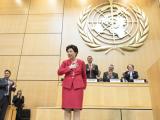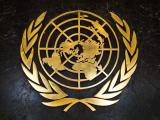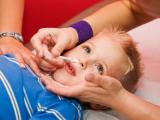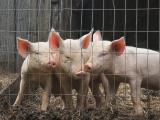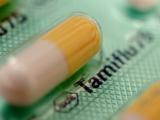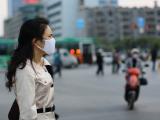Sep 6, 2012 (CIDRAP News) – Experts who carefully studied 99 adverse events reported in children after they received the H1N1 influenza vaccine during the 2009 pandemic concluded that most of the events were unrelated to the vaccine and left no lingering effects, providing reassurance of the vaccine's safety.
Writing in the Pediatric Infectious Disease Journal, the experts reported that 16 of the adverse events following immunization (AEFI) were definitely or probably related to the vaccine, and another 21 were possibly related. The rest were listed as unlikely to be related (43), unrelated (17), and unclassifiable (2).
The case-by-case review "provided reassurance that most events resolved spontaneously and without sequelae and were not likely to be related to the vaccination," the report states. The 2009 H1N1 strain continues to be included in trivalent seasonal flu vaccines.
The authors are members of the Centers for Disease Control and Prevention's Clinical Immunization Safety Assessment (CISA) network. Barbara Pahud, MD, MPH, of Children's Mercy Hospitals and Clinics in Kansas City, Mo., is first author of the study.
The 99 cases reviewed were among 3,928 H1N1-vaccine-related events in children reported to the Vaccine Adverse Events Reporting System through January 2010. Of these, 214 were classified as "serious, non-fatal," and the CDC referred 109 of them to the CISA for further review. The authors obtained enough clinical information to complete their review in 99 of the 109 cases.
The mean age of the 99 patients was 8 years, and 38% were girls. The vaccines given included 68 inactivated, 26 live-attenuated, and 5 unknown. Sixteen patients had received other childhood vaccines the same day they received their flu shot. The median interval between vaccination and the adverse event was 2 days.
Forty-seven of the 99 events were initially described as neurologic, 15 as allergic, and 10 as respiratory; the other 27 pertained to various organ systems.
Among the neurologic events, 11 were diagnosed as seizures, and 9 were reported as Guillain-Barre Syndrome (GBS). When the latter were evaluated using Brighton Collaboration criteria, one case was excluded. Symptoms in the GBS cases appeared an average of 14 days after vaccination.
The authors assessed the likelihood of a causal connection between vaccination and the AEFI as follows: 8 definite, 8 probable, 21 possible, 43 unlikely, 17 unrelated, and 2 unclassifiable.
Of the neurologic events, 70% were found to be probably or clearly unrelated to the vaccine, and the rest were mostly in the "possible" category. The presumed allergic events broke down this way: 6 definite, 7 probable, 1 possible, and 1 unlikely.
The events determined to be definitely or probably related to the vaccine included local reactions, anxiety reactions, syncope, and allergic events.
As for outcomes, 61 of the 99 patients had complete recovery, 16 had partial recovery, and 1 had no improvement as of last contact with providers, a few weeks after the initial report. In 21 cases the authors couldn't obtain information about the outcome.
The authors remark that their findings are consistent with several other reports published since the pandemic that support the safety of 2009 H1N1 vaccines. "No signals have been found for serious adverse events in children, although an increased risk of GBS has been suggested in some but not all studies," they write.
The researchers say one of the limitations of their study is that, because they conducted the review during the pandemic vaccination campaign, which involved a vaccine with a novel strain, little information was available about adverse events following H1N1 vaccination. Therefore they evaluated cases using evidence related to seasonal flu vaccines, which was limited for some of the events.
This complicated the assessment of the GBS cases in particular, none of which were assessed as definitely or probably related to the vaccine, they remark.
"New information will likely be published on the safety of 2009 H1N1 vaccines that was not available at the time of this investigation, which may change causality assessment in the future for seasonal vaccines that contain H1N1 antigen," the report state
Pahud BA, Williams SE, Dekker CL, et al. Clinical assessment of serious adverse events in children receiving 2009 H1N1 vaccination. Ped Infect Dis J 2012 Sep 4 (Early online publication) [Abstract]


